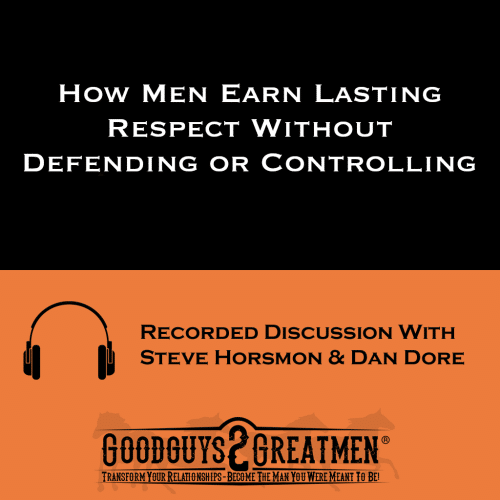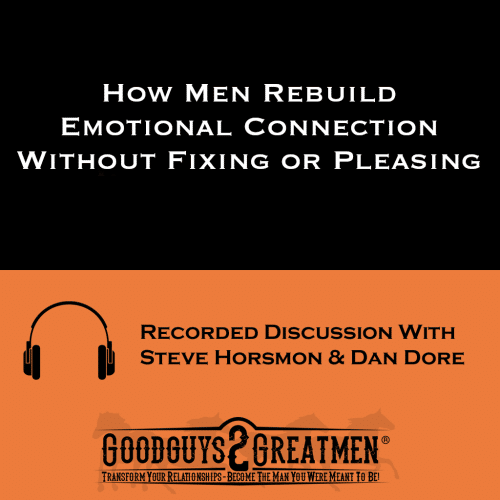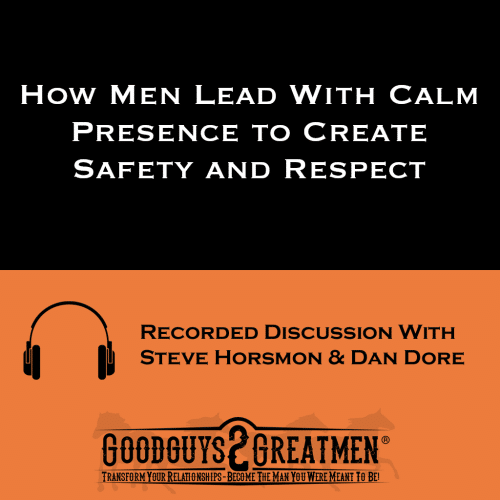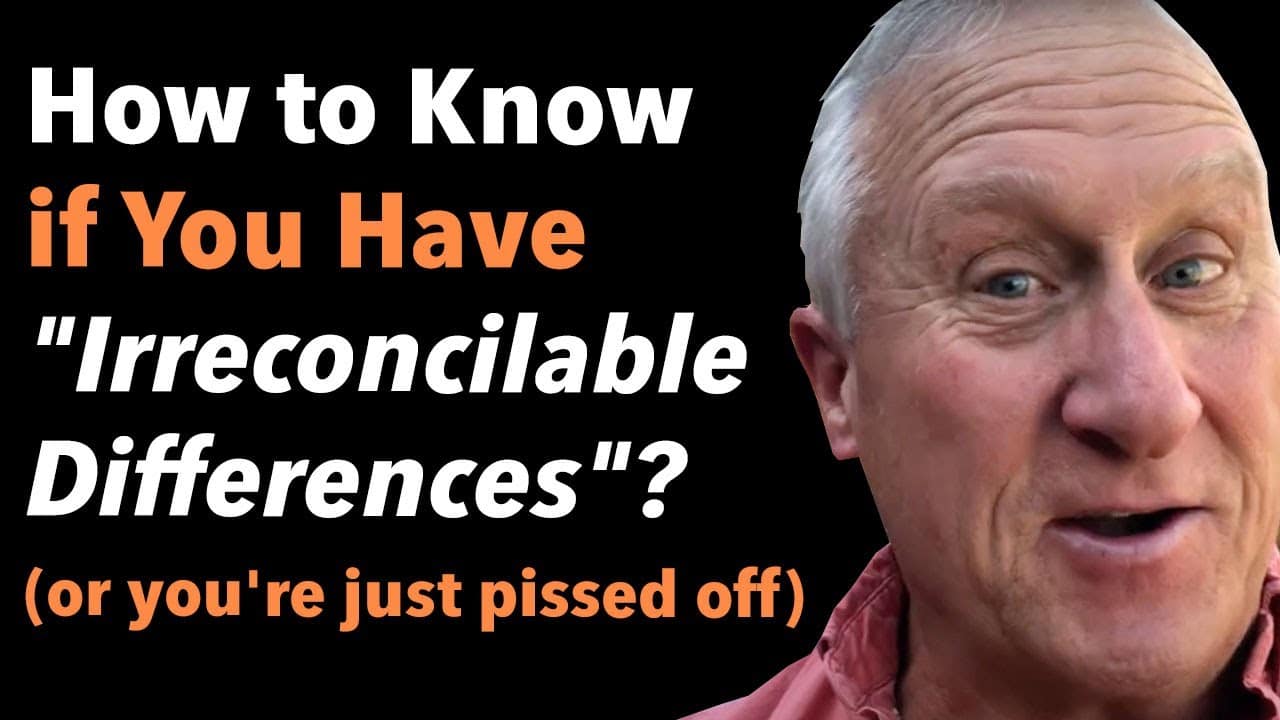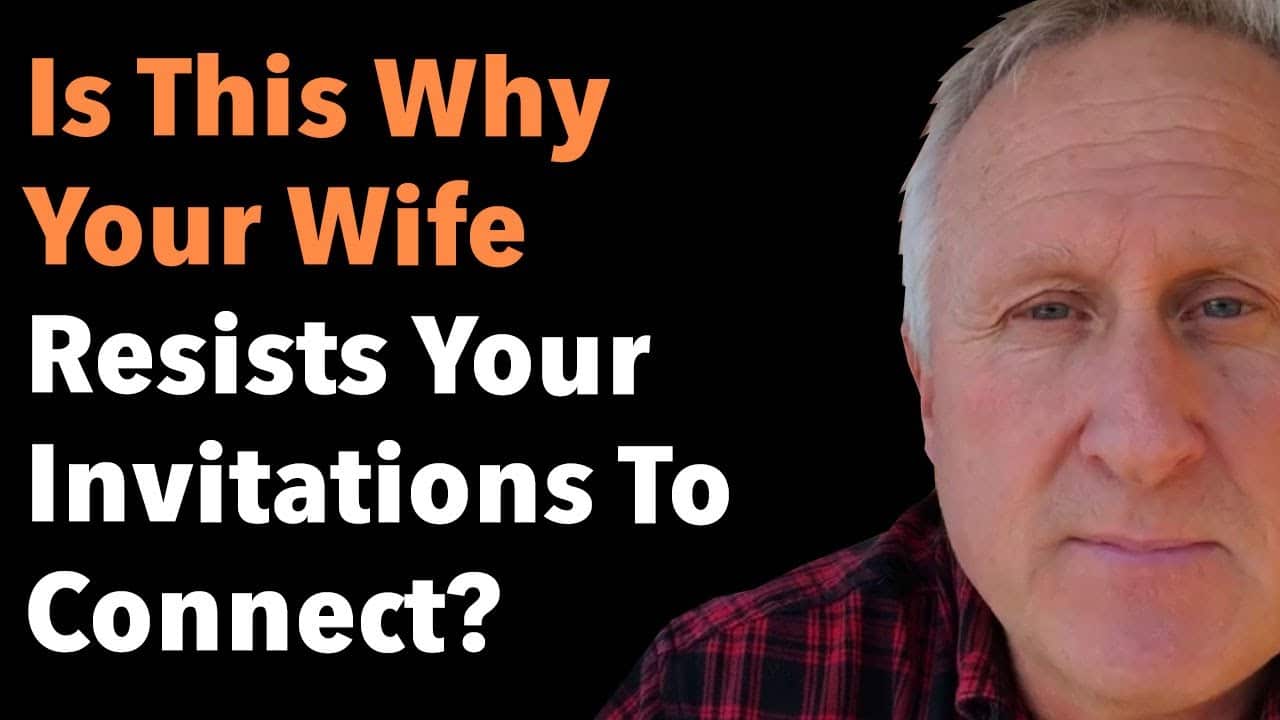Wife Said “I Need Space!” Now What?
Is your relationship falling victim to the frustrating pursuer/distancer dynamic?
Jane: “Why do you always do that?”
John: “Do what?”
Jane: “You ignore me. Everything is more important to you than me.”
John: “No, it’s not.”
Jane: “We need to talk about this. You’re doing it now.”
John: “I don’t see the problem. You’re overreacting.”
Jane: “No, I’m not!”
John: “I don’t want to talk about this anymore.”
Jane is pursuing. John is distancing.
In her study of 1,400 divorced individuals over 30 years, divorce expert E. Mavis Hetherington found that couples who were stuck in this mode were at the highest risk for divorce. Researcher Dr. John Gottman of the University of Washington and The Gottman Institute, also noted that this destructive pattern is an extremely common cause of divorce. He claims that if left unresolved, the pursuer-distancer pattern will continue into a second marriage or subsequent intimate relationships.
What is it exactly?
Therapist and author, Dr. Harriet Lerner summarizes the pattern like this.
A partner with pursuing behavior tends to respond to relationship stress by moving toward the other. They seek communication, discussion, togetherness, and expression. They are urgent in their efforts to fix what they think is wrong. They are anxious about the distance their partner has created and take it personally. They criticize their partner for being emotionally unavailable. They believe they have superior values. If they fail to connect, they will collapse into a cold, detached state. They are labeled needy, demanding, and nagging.
A partner with distancing behavior tends to respond to relationship stress by moving away from the other. They want physical and emotional distance. They have difficulty with vulnerability. They respond to their anxiety by retreating into other activities to distract themselves. They see themselves as private and self-reliant. They are most approachable when they don’t feel pressured, pushed, or pursued. They are labeled unavailable, withholding, and shut down.
Dr. Lerner points out the importance of recognizing that neither pattern is wrong. In a normal relationship, we may actually take turns adopting one role or the other. Healthy relationships can handle the stress with mutual respect and appreciation. Both partners are aware of their behavior and are willing to adjust it for the benefit of the relationship.
Other articles you may find helpful:
The Key Skill Required For Leading The Intimacy In Your MarriageHow To Avoid Making This Mistake Which Turns Off Your Wife
The problem that most commonly leads to the dismantling of the marriage is when partners become entrenched in the roles. If something does not change, both begin to feel criticized and develop contempt for each other—two of the major warning signs that their marriage is doomed to fail, according to Dr. Gottman.
What does it look like?
A common scenario is where a wife is very anxious over the lack of communication from her husband. She wants him to open up to her more. She wants him to be more vulnerable and to connect with her so they can work on getting along better. His response is, “I don’t know what you’re talking about.”
So she pushes harder and he moves away. Her frustration shows as she begins to criticize him and he returns the volley. She becomes angry and he builds an emotional wall of isolation.
She can’t imagine why he won’t see how wrong and stubborn he is. He can’t believe she doesn’t know how unfair and brutal her pressure feels to him.
Dr. Gottman believes that the tendency of men to withdraw and women to pursue is wired into our physiology and reflects a basic gender difference.
I’m not so sure about that. I’ve seen so many examples where the roles were reversed it would appear pursuing or distancing is more about personality than gender.
I’ve coached dozens of men who were the full-time pursuer in their relationship. They pursued sex, emotional connection, affection, communication, appreciation, attention, and respect. Their debate tactics were legendary. They crafted incredibly impassioned and rational arguments which proved beyond a doubt that she was wrong. All she needed to do was agree and get with the program. They didn’t stop until they got agreement. They learned that never happens.
Both men and women can be pretty good pursuers. I think the skill is best used for pursuing mutual happiness rather than our own righteousness.
Why does it matter?
I have no reason to debate Dr. Gottman’s theory on gender based pursuer-distancer patterns. The research by Gottman and Hetherington is important. It can save marriages or save an individual from a life of bad relationships.
The research sheds light on the extremely common dynamics that happen in everyday relationships with everyday people. It gives language and insight to the thoughts, emotions, and behaviors which consistently cause the end of relationships. The relative statistics don’t matter as much as what a person chooses to do with the information.
That’s all that ever matters when it comes to our relationships. What conscious choices will we make? What will we expect of ourselves in our thoughts, emotions, and behaviors to increase the likelihood of a happy, respectful, and enduring relationship?
With proper information and willingness, human beings can choose how they will respond to relationship stress and intentionally diffuse criticism and contempt.
They can be a less aggressive pursuer and a more engaged distancer if they want to be.
But pursuers must go first
Dr. Lerner notes something I see consistently with male clients who are pursuers.
“The pursuer is the one in more distress about the distance, and more motivated to change the pattern. For this reason, the pursuer is often best served by discovering ways to call off the pursuit—and there are ways to reconnect with a distancing partner that don’t involve aggressive pursuing. A distancer may feel unhappy about how things are going in a relationship, but he or she is still more likely to maintain the status quo than to move toward a partner who is in pursuit mode.”
This is the reality faced by the pursuer men I work with. His distancer partner’s ability to maintain the status quo is mind boggling. She will stay in distancer mode for years while he keeps trying the same old tactics. She feels powerless to move toward him because she needs first to feel a release of the intense pressure of his relentless pursuit.
The impact on a woman’s ability to trust from years of pursuit can be enormous. It’s hard for him to understand her fear and skepticism about reconnecting. Rebuilding trust requires a consistent and dependable energy of acceptance and respect. She wants to feel less pressure, less judgment, and less anger.
When he chooses to understand and empathize with these critical needs of hers, he can choose a new mindset. He can consciously draw back and focus on other things. He can love her in ways that pull her toward him instead of pushing her away. He can choose to learn what that means for her.
What if she is the pursuer?
Everything applies the same. She has the same responsibility.
But distancers beware
Dr. Lerner also gives a warning to distancers.
“But distancers beware: Many partners, exhausted by years of pursuing and feeling unheard, leave a relationship or marriage suddenly. When a distancer realizes that a partner may actually walk out, he or she may flip into a position of intense pursuit. But it may be too late.”
What does this mean for distancers?
She must realize the power she holds in how she chooses to respond to his desire for connection. A choice to create feelings of fear and inadequacy in her partner also sabotages her own chance for a rewarding relationship.
She must be aware of what she is avoiding and why. Just because her partner is pressuring her doesn’t make him wrong. Maybe his expectations are reasonable and she is resisting feeling controlled.
Maybe he is calling her out on something she knows darn well could be improved, but she resents him pointing it out. She must be honest with herself.
And if he is truly being unreasonable and unfair, she should step right into his space and calmly tell him so without hesitation. She should firmly stand her ground, but from a place of love and respect.
The worst thing for a pursuer to feel is detachment. When they are given the gift of genuine presence and attention they are able to relax and back off so much easier – even if you disagree.
Of course, a man who is distancing has the same responsibility.
Starting all by yourself
Must both people do their work at the same time in order to escape the pattern?
No. And expecting that to happen will negatively affect their ability to start making their own changes.
Changes must be driven by a desire to be a better partner—not to get some instant result or reciprocation. Pursuers are known for being outcome dependent and have a hard time making changes without expectations. Distancers are known for being stubborn and have difficulty making the first move when under pressure.
When one person makes a commitment to change their approach and their responses, on a consistent basis, their relationship will change. The first change is you feeling better about yourself. The second change is normally your partner feeling good about you feeling good.
This is a really strong start. It can only get better from there.
My new book Straight Talk Tools for the Desperate Husband will help you to lead yourself and your relationship back to good health. Understand why your partner acts the way she does toward you and learn how to lead your life in the direction you want it to go. You CAN have the relationship you want, fulfilling all your desires while maintaining love and respect.
I wrote a free e-book to help men learn how to lose their fear and be more bold in their marriage to create the love and connection they want. Get The Hard to Swallow Truth About Saving Your Marriage.
If you want to learn more about how to take a bigger step toward being a clear-headed, confident man of action, then find out more here. I would be thrilled to help you get there – our first discovery call is always free and always gives you a BIG boost of confidence.
You WILL become a clearer, stronger, more confident man only through other men. Your woman cannot take you there – and she doesn’t WANT to…trust me on that.
Photo: Alexandra/Flickr
Q: Why does the pursuer–distancer pattern feel so stuck and repetitive in my relationship?
A: Because both of you are reacting to stress, not choosing consciously. One pursues to reduce anxiety, the other distances to reduce pressure. Over time, this creates criticism, defensiveness, and emotional shutdown. Until one person changes their response, the cycle keeps reinforcing itself automatically.
Q: What should I do when I’m the pursuer and she keeps shutting down or pulling away?
A: Call off the pursuit. More pressure never creates connection. As the pursuer, you’re usually in more distress—and that’s why your change matters most. When you reduce urgency, judgment, and outcome-dependence, you create safety. That safety is what makes reconnection possible.
Q: How do I stop pursuing without becoming cold, distant, or resentful?
A: You don’t withdraw—you recenter. Focus on self-respect, emotional regulation, and living a full life instead of monitoring her responses. This is not detachment; it’s grounded presence. When you feel good about yourself, your energy shifts—and that’s what changes the dynamic.
Q: What if my partner is the pursuer and I’m the one who needs space?
A: Distancing doesn’t mean disappearing. The antidote to pursuit isn’t withdrawal—it’s genuine presence without defensiveness. Calm attention, even brief, helps a pursuer relax. Avoiding, stonewalling, or maintaining the status quo may feel safer short-term, but it often leads to sudden breakups later.
Q: Can one person really change the pursuer–distancer dynamic alone?
A: Yes. Waiting for both people to change at once usually keeps couples stuck. When one partner consistently changes their reactions, the relationship shifts. First, you feel better about yourself. Then your partner responds differently to your steadiness. Change starts with leadership, not agreement.
Q: How do I know if this pattern is hurting my marriage long-term?
A: If criticism, contempt, emotional walls, or chronic frustration are becoming normal, the risk is real. Research shows unresolved pursuer–distancer dynamics often carry into future relationships. The good news is awareness gives you choice—and conscious choices can restore respect, trust, and connection.

Have questions about your relationship?
Apply for a free, no strings, 90 minute deep dive personalized coaching session to help you identify what to focus on and what to avoid to get you moving toward the future you want. We offer a unique form of Men’s Coaching and we attract smart guys who see through surface level hype and bravado. We hide nothing and hold nothing back. We know that everything you want is behind your fear and skepticism…just like it was for us.


